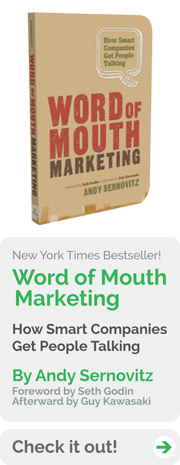Dave Evans is the VP of Social Strategy for Lithium Technologies and author of the best selling book “Social Media Marketing: An Hour a Day.” This blog post is part two of an excerpt adapted from his book. Read part one here.

Ironically, it’s when the advertising and marketing is low-key or absolutely quiet that the “trust” factor is highest.
“Here, I made this. It’s for sale. Buy it and try it out. If you like it, great. If not, you can give it back and I will refund you 100 percent of your money.”
More than a few brands have built themselves largely and purely on the combination of a great product and word of mouth: Starbucks, Red Bull, Hotmail, and Amazon come to mind.
In the case of Amazon, while they advertised early on, they felt the return did not justify the expense. So, in 2013 they dropped the ads and offered free shipping on orders over $25. The result was explosive in terms of word of mouth.
Instantly, everyone knew that “shipping was free” at Amazon, something that served them well on two counts. First, there was the obvious benefit of word of mouth. Second, the conversation centered on one of the central objections from the consumer perspective with regard to online shopping: the incremental cost of shipping versus buying from a store. By removing this objection from the conversation, Amazon had made itself the obvious place to buy. The rest is history.
In the same way, brands ranging from Old Spice to Craftsman have built themselves — with advertising — while following the same path: “If you don’t like it, or if it breaks, we’ll make good for it.”
It works with basic packaged goods: “Try Old Spice. If you don’t like it, we’ll buy you whatever you normally use.” When I talked with Larry Walters, who created that campaign, he said he’d yet to be asked to buy a competing brand for a dissatisfied customer.
This type of guarantee also works in more substantial purchases: Craftsman — the Sears in-house brand of hand tools — has long offered a simple guarantee: “If our tool breaks — if it ever breaks — we’ll hand you a new one. Free.” Remarkably, that guarantee will emerge in any conversation with anyone who uses Craftsman hand tools, even though most have never had a Craftsman tool break. Want proof? While I was writing Hilary Powers, the developmental editor working on the book with me, shared the following:
“My mother had a pair of pruning shears break after 20 years of steady use, and she took them along to the store to make sure she bought the same thing again. The clerk pounced on her and sent her off with a new pair free — and that tale got told and retold.”
“Satisfaction Guaranteed” is a fundamentally powerful guarantee that at once conveys quality and largely removes the self-interest in the sales pitch.
Yes, Sears wants to sell you a tool. But in the same transaction, Sears is also agreeing to enter into a life-long, binding, irrevocable contract of performance. That is the kind of transaction that builds trust. That is the kind of experience that gets talked about.
Word of mouth applies to non-transactional campaigns as well.
Advergaming — an early form of interpersonal media — is largely built on word of mouth. In 2003, Dial Corporation, working with our group at GSD&M Ideacity, released “Coast BMX Full Grind,” a video game created by Wild Tangent based on the Activision title “Matt Hoffman’s ProBMX.”
The game built on the action inherent in the underlying title, and featured added brand elements along with some new BMX tricks and riding areas created specifically for the advergame. High-score and “challenge boards” ensured that the game — made available for free — would receive wide circulation.
The most telling aspect of the game in regard to word of mouth and trust came oddly, in a complaint from a player.
As a strategy director for this project, I wound up fielding the complaint. It is always a good test of the mettle and prowess of a social media team when the challenge of handling objections arises.
A particular player was absolutely livid that we had “ripped of” his favorite game (Activision’s ProBMX) and produced this “advertisement” based on it. He was personally writing to Matt (Hoffman) and urging him to sue us. I wrote him back, within an hour or so of the time he sent the email. I explained that we had worked with Activision, that the game was fully licensed, and that Matt was okay with this.
I wanted to address first what he was so upset about. But I took a further step: I explained that we had built the game for him to share with his friends who didn’t have the game that he loved so much, and that we had created some new riding spaces and tricks that he may not have seen before. In other words, I connected him to the underlying objective of the campaign: participation with friends in something that is genuinely fun and totally on the up-and-up. I clicked “Send.”
That same day, I got an email back. He not only apologized, he went on to become one of the highest scorers and biggest promoters of the game. He got the fact that we had thought about him and his friends, and built something for them to enjoy.
As a result, we earned his trust, and he rewarded us by talking about it.
About Dave Evans
Dave is the VP of Social Strategy at Lithium, based in Austin, TX. Dave has worked in social technology consulting and development around the world and the author of best-selling "Social Media Marketing: An Hour a Day" and "Social Media Marketing: The Next Generation of Business Engagement." Dave is a regular columnist for ClickZ, and a frequent keynoter.
- Web |
- More Posts(2)


